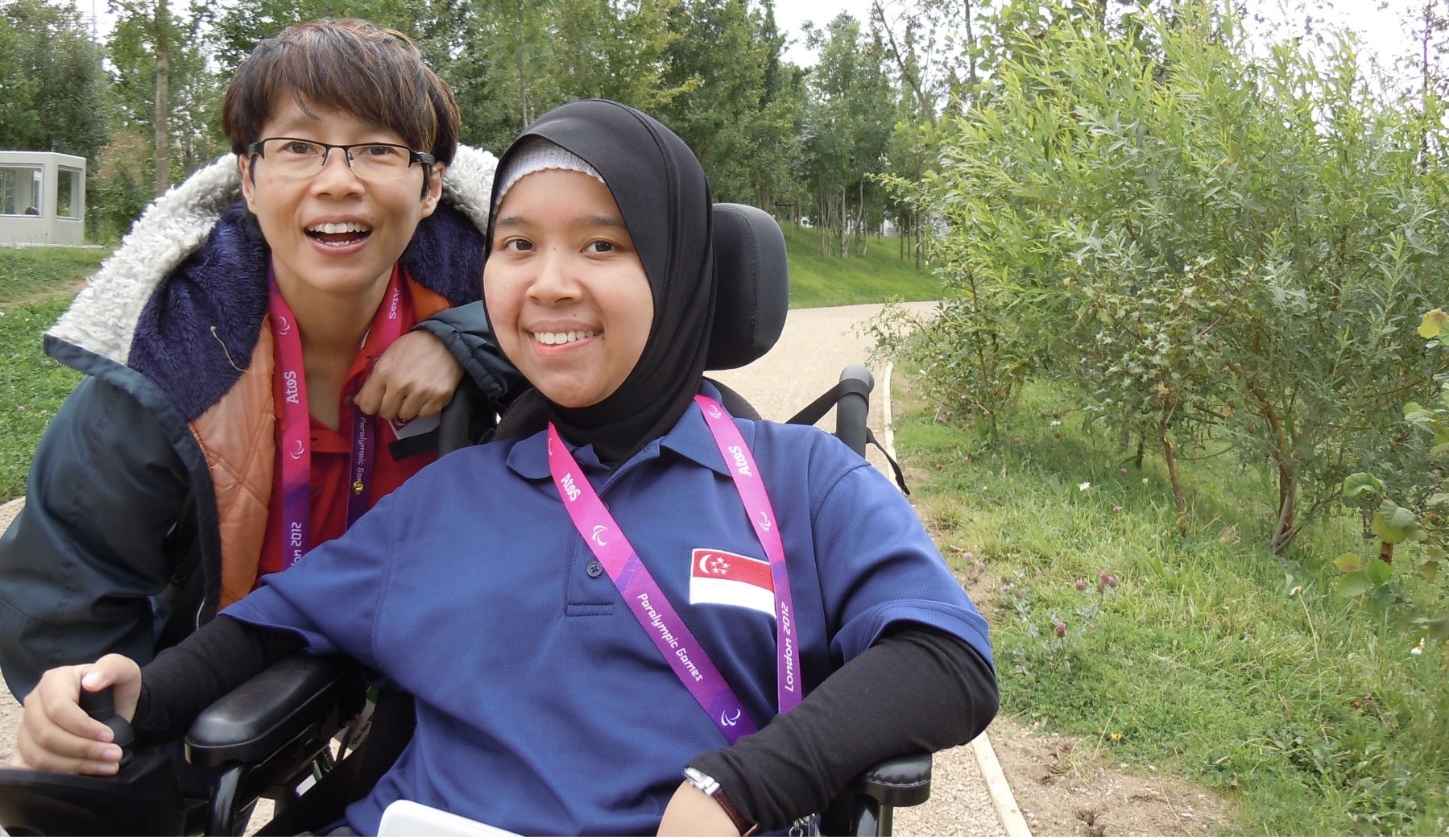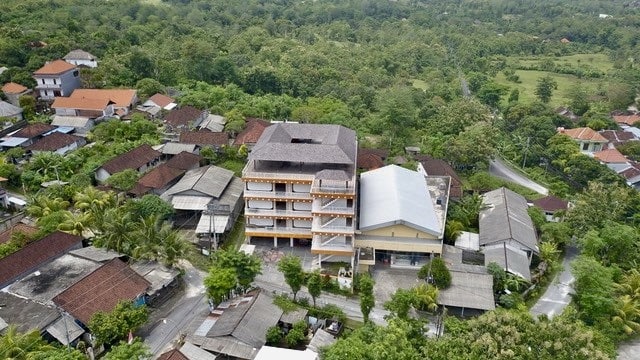“Unless we look after others, we cannot get out of this crisis”: CEO Arthur Kiong on running a business amidst Covid
by Gemma Koh // September 30, 2020, 5:23 pm
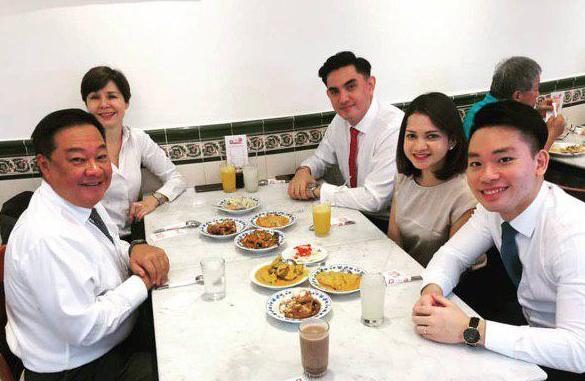
Inspired by his daily devotions, Arthur Kiong introduced Daily Dose in the hospitality group: Before every shift, staff take 20 minutes to visit one of 11 attributes forming the acronym ACTS OF GRACE. Kiong (left) having a meal with the team. All photos courtesy of Far East Hospitality.
He started his working life hawking slimming products to beauty salons when he didn’t do well enough to get into university – a possibility he had never considered.
Later, he would trip into a career as a radio DJ, which would make him a household name. But then switch off that microphone to start at the bottom rung of the hospitality ladder. (He was a greeter at Italian restaurant, Prego.)
God showed him that good business and doing good in business are not mutually exclusive.
In his 34 years in the hospitality industry, veteran hotelier Arthur Kiong, 60, has battled conflict and catastrophes: The Gulf War. Severe Acute Respiratory Syndrome (SARS). 9/11. All of them radiated shock waves that brought hotel occupancy to record lows.
Now the world is facing its greatest challenge yet: Covid-19, which slammed shut international borders and, with it, many tourism-dependent businesses.
Yet Far East Hospitality, where Kiong is CEO, has managed to stay profitable and maintain staff salaries.
The Singapore-grown organisation has a portfolio of nine hotel brands, over 95 (and counting) serviced residences and apartment hotels, and more than 15,500 rooms in eight countries across Asia, Australasia and Europe.
Kiong tells Salt&Light how God showed him that good business and doing good in business are not mutually exclusive.
What kind of challenges did Covid throw at your group?
We got wind early on that the government needed facilities for quarantine, swabs in isolation and stay-home-notices. We struggled. We were thinking that we had other customers to take care of. And if we were to be involved in quarantine, there may be a stigma attached to us. But the pivot in this crisis was: Where can we make the biggest social impact? And how can we be of service to as many people as possible?
We looked upon it as a sense of national duty to support the government by committing as many hotels and as many rooms as possible.
“The pivot in this crisis was: How can we be of service to as many people as possible?”
At that time, we thought it was this huge sacrifice that we were making. But it turned out to be a huge blessing because that was the only business available. We found out very soon that nobody could come into the country, so there was no one to offend, no one to impress.
That allowed us to be profitable through the crisis. And our organisation managed to maintain everyone’s pay, and we did not lay anybody off. Which is a huge blessing. But we never started out using that as a strategy; it came as a result.
What we did for one reason turned out to be the best thing that we could do.
There was an element of divine intervention in there. I’m thanking the good Lord that none of our staff has contracted the disease so far. We managed to keep everyone safe. We have been incredibly blessed.
Did your experience with 9/11 and SARS prepare you for Covid?
Yes, in the way that I know how the story will end. The good Lord is in charge, and we will get out of the other side fine. I am able to assure those I lead that we will be fine, and in order to derive this outcome, let me chapter the various phases and what we must do in relation to what’s happening in the marketplace.
Having gone through 9/11 and SARS taught me this particular process: The situation will get worse before it gets better. It is not going to end anytime soon; it will probably end some time next year. It will end when a vaccine or public confidence returns.
“Societies that are united, loving and considerate to others will get out of this better and faster.”
So what will happen between then and now? At some time, the domestic market and the regional market would open before the international market.
In the short term, we need to assure our staff that we are doing tangible things to keep them safe and we have their well-being at heart.
For the long term, we need to see how we can use this crisis to transform our brand and to emerge much stronger.
When you have such a definitive action plan, and are able to anticipate the market, your people pay attention and listen to you. They will be able to judge for themselves: Will it come to pass or not? On a scale of one to 10, how often are you right? And when you have proven to be able to navigate (through the crisis) and are right more often than you are wrong, it builds confidence, it builds morale. And it gives everyone a sense of belief in what you’re doing.
What is your message throughout this crisis?
This crisis is somewhat like the Tower of Babel, if you were to look at it in a philosophical way:
- We don’t control our own destiny; we are subject to forces that are beyond yourself.
- It is an opportunity to reset our priorities.
Unless we look after others, we cannot get out of this crisis by ourselves. So for example, you’re wearing a mask not just to protect yourself. You are wearing one to protect others: I protect you, you protect me. And if you love thy neighbour as yourself, you’ll get through this. Societies that are selfish and believe in “my freedom above all else” will suffer.
Societies that are united, loving and considerate to others will get out of this crisis better and faster.
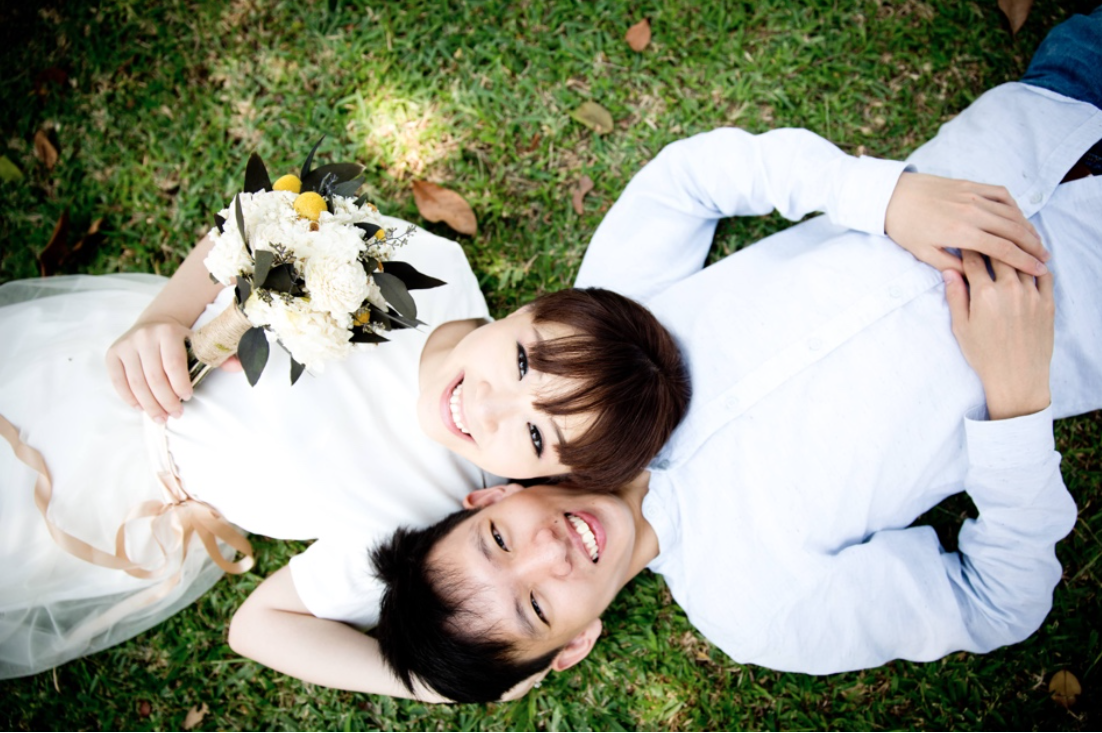
Far East Hospitality is helping small and medium local enterprises weather the pandemic by teaming up with them to create unique packages for Singaporeans, and visitors when borders reopen. Staycations at Orchard Hotel Rendezvous, for example, are packaged with a photo shoot and an elegant picnic spread (cleaning up included).
So having been through 9/11 and SARS, Covid doesn’t scare me.
The crisis has allowed us to do some really wonderful things that we’ll see the dividends of when we come out of it.
Has the crisis opened up new opportunities?
We’ll be seeing a world that is a lot more sensitive to quality tourism and sustainability.
I would argue that there is a levelling of the playing field for a regional chain in comparison to an international chain. This provides us with a tremendous opportunity to grow overseas.
Following Christ is integrated in everything that we do and not just reserved for certain days of the week.
Previously, when competing with the internationally branded players, the regional player is somewhat lacking in its distribution, and size of its customer base. But post-Covid, hotel owners are looking for operators that have regional strength rather than international distribution because the world has become more bifurcated. This presents opportunities for us to expand into new geographies and new types of businesses, such as resorts, spas, and our own brand of restaurants.
It’s also given us the opportunity to reset and think about how we’re going to create better paying jobs for Singaporeans, because moving forward, the quota on foreign labour will be tightened. To excite Singaporeans to join the hospitality industry, we have to create jobs that they desire. And in order to do that, we have to think of how we can leverage on innovation and technology to transform our style of operations.
We are also partnering local businesses to create an experience to make the brands we run come alive, and to create products that are different, exciting and extraordinary.
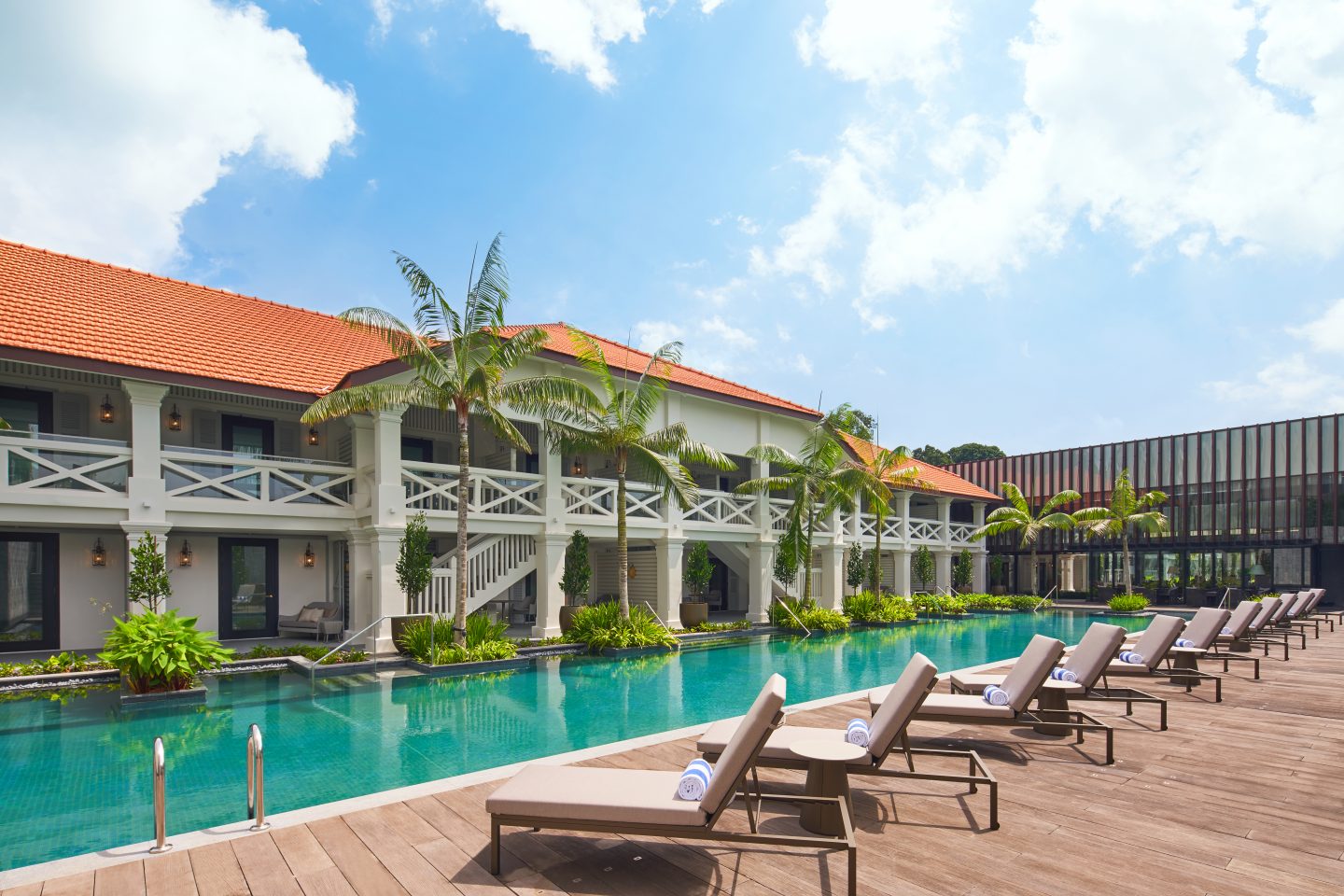
The elegant colonial charm of the Barracks Hotel Sentosa. It was originally a military outpost in 1904.
So when you stay at The Barracks Hotel on Sentosa, you can go on a private yacht cruise of the Southern Islands. We partner with Darren Lim, a yacht owner who happens to be a celebrity. So it’s a bit of a talking factor and that will be appreciated because Singaporeans recognise him.
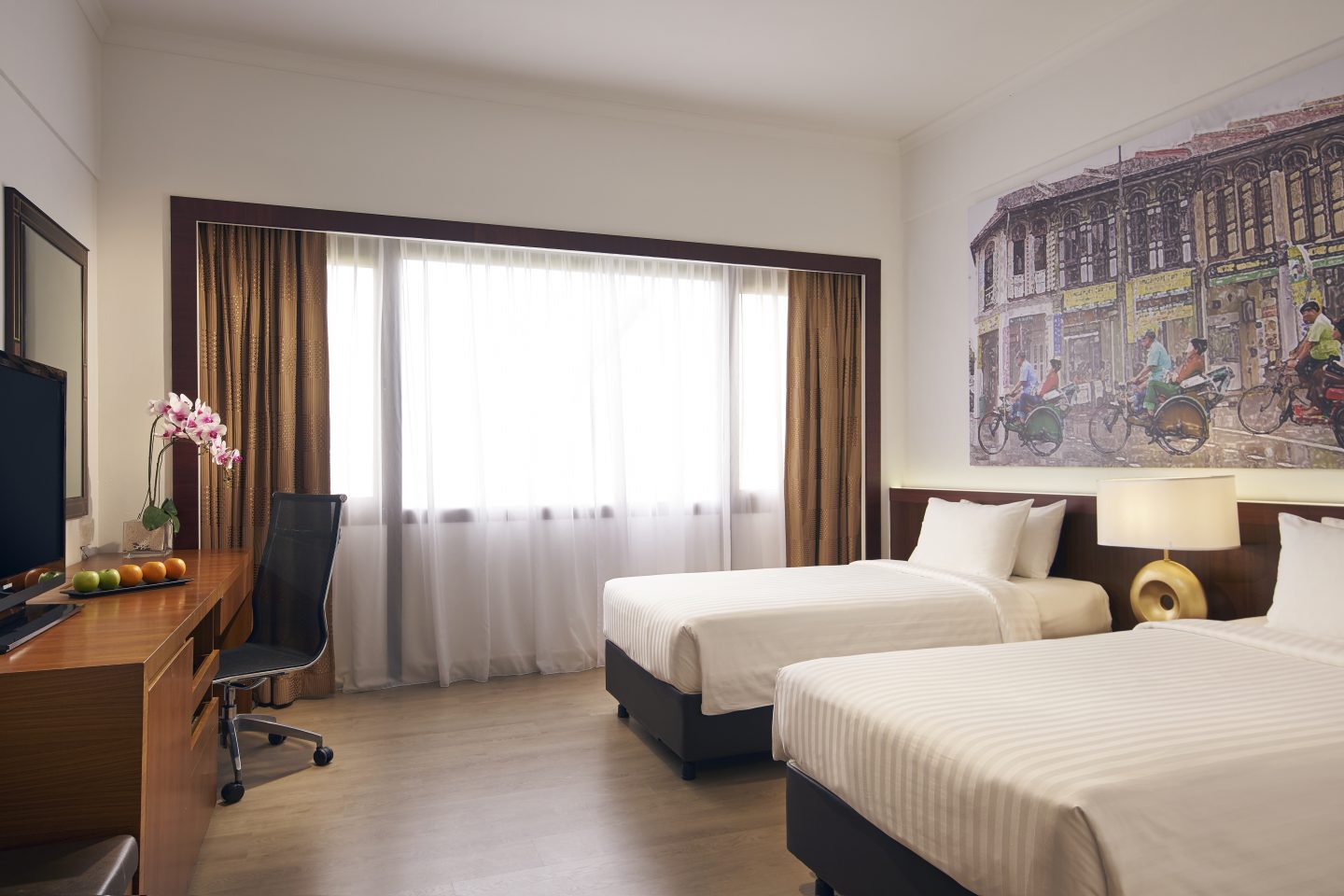
A staycation package at the Village Hotel Bugis could include a ride in a vintage Volkswagon Kombi to Changi Village. From there, a ferry takes you to a kelong where you can catch your own lunch.
Staying at our Village Hotel Bugis, we’ll take you on a trip to a kelong where you can fish. We’ll cook the fish for you, and you can enjoy a lunch of what you caught at the kelong with your family. It’s not what Singaporeans do every day.
Post-Covid, I think these products will have relevance to tourists who want to enjoy something truly authentic and different from the same-old same-old.
If it weren’t for this Covid-19 reset, when would we have the opportunity to say: Let’s go into new business streams? When would we have the time to sit down and say: Let’s redesign our jobs so that we can attract Singaporeans for tourism to be more sustainable?
Besides staff meetings, where do you get your ideas?
From my one-hour daily morning walks communing with God.
Walking 10,000 steps or swimming a kilometre is the best time to pray, to meditate. And it’s not as if there’s a conscious effort to try and get ideas, but it’s through these processes that one finds inspiration here and there.
I used to take my swim in the middle of the day to kill three birds with one stone:
- Not be tempted to have lunch, so that’s good for my weight.
- When you’re swimming 40 laps, there’s nothing to do but to meditate and pray and recite verses.
- You get your exercise done.
I don’t swim so much now because it’s very inconvenient – you have to book a lane, and a lane is not always available. During this pandemic, walking is the more efficient exercise.
How do you manage your time as a busy CEO?
In the job that I do, it’s virtually impossible to practise work-life balance, to say that, for the next two days, I’m just switching off.
“Work-life integration means trying to commune with God and experience His presence multiple times in a day.”
In my role, I’m on 24/7 because it’s an operational business, and I need to be involved. I don’t need to micromanage, but I need to be accessible for my team.
I believe in work-life integration. So, in the course of my day, it’s how I take time off to enrich my mind, how I take time off to pray.
I am a firm believer that communing with God is not dedicated to only a time in the morning or before one sleeps. Work-life integration means trying to experience God’s presence multiple times in a day. Before we partake in a meal, before we go into a meeting, before we communicate an idea … we say a silent prayer.
And there’s time to observe and be still and know that He is God. Following Christ is integrated in everything that we do.
How do you bring Christian principles into management?
I’m very lucky because Philip Ng, owner of Far East Organisation that I work for, is a stalwart Christian. And he has provided a template and the platform that allows us to do the work we do. He has three principles:
- We are all stewards and we are servant leaders. And nothing we have, we actually own. We are given this limited time to do the best we can to grow what we have been given. So we have been given talents – wealth (in the Bible, a talent is a unit of money) or talents that we are bestowed with. How do we use and grow what we are given?
- We all need more ministering and less administering.
- We’re here to do good business, as well as do good in business.
I think these are very powerful. The Christian ethos is embedded in the way we conduct business.
For the hospitality side of the business that I am in charge of, I identified 11 behavioural traits that I hold dear. They form the acronym ACTS OF GRACE.
“The Christian ethos is embedded in the way we conduct business.”
Attitude: We are responsible for our own well-being.
Customer: Do unto others what you want others to do to you.
Teamwork: Not only must you know your role, but you must know the role of your neighbour. So that you can step in and help him, just as he can step in to help you. To walk a mile in someone else’s shoes is very important. I always say that teamwork is not a relay but a game of football.
Savviness: We don’t want to be corporate Pharisees, where you do everything right, but you’re not doing the right thing.
Observation: To observe the unspoken needs of others.
Fulfilment: What can we do to help our customers and ourselves be more fulfilled?
Gratitude: In everything give thanks. (1 Thessalonians 5:18).
Responsive: So when you send me an email, you’ll get an immediate response from me. Even if I can’t give you an answer, I’ll tell you that I’m working on it.
Anticipate. Think and plan ahead.
Change: Change is constant; find a better way to do your job. Evolve.
Engender trust: Underpromise, overdeliver.
These 11 behavioural standards are embedded in everything that we do.
“We don’t want to be corporate Pharisees, where you do everything right, but you’re not doing the right thing.”
Inspired by Our Daily Bread devotions, we have a system called Daily Dose: In every hotel, in every department, before every shift, everyone gets together to huddle for 20 minutes, and we visit one of these attributes. We talk about what we can do better in behavioural standards.
We are also very careful as an organisation that embraces Christian values not to make believers of other faiths amongst us – and they are the majority – feel disenfranchised. So, we are spreading the Gospel through tangible things we do: How we treat each other, how we exercise compassion, how we are not nickel-and-diming our customer, how we go beyond what is necessary, and give the benefit of the doubt, how we turn the other cheek. So these systems allow us to live out our Christian walk through our work.
Is this natural for you?
I’m not a naturally humble, gentle type of guy. I’m a naturally take charge and let-me-tell-you-my-opinion kind of guy. But I try to control my natural overbearing Type A personality by wanting to be an obedient servant of Christ. I don’t know whether I’m succeeding or not.
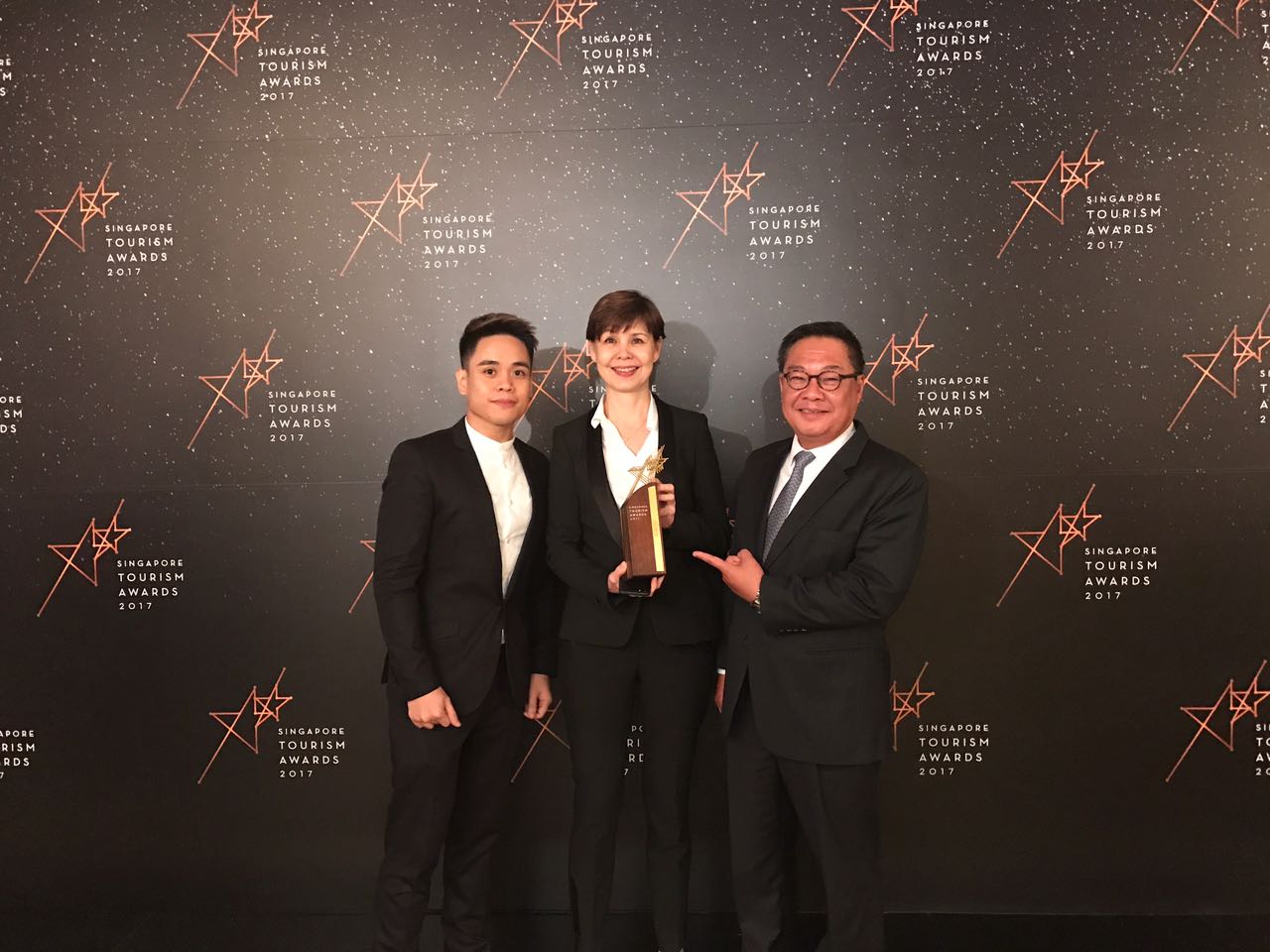
Kiong (right) and his Quincy Hotel team receiving the Best Experience Hotel award by the Singapore Tourism Board in 2017.
But I’m grateful for a very cohesive and very loyal team that has been with me for a very long time. And I think, at the end of the day, one is judged by the fruits of the Spirit (Galatians 5:22-23).
One has to ask oneself: Is there love, peace and joy? Is there kindness, is there patience? If, generally speaking, these fruits exist in the work environment that I’m responsible for, then I would be judged by the fruits.
And the fruits of our labour must be attractive enough for others to ask: Why are you different? What is your philosophy? Who do you worship?
And that’s the way I want to live my life.
Read Part 1 of Arthur Kiong’s unexpected personal journey that shot him up the hospitality career ladder (below):
If you liked this profile, you may like these stories on making Christ our CEO:
Far East Organization’s Philip Ng on learning to be a servant CEO
“God is the Master Builder”: Datuk Edward Ong, founder of the Sutera Harbour Resort
We are an independent, non-profit organisation that relies on the generosity of our readers, such as yourself, to continue serving the kingdom. Every dollar donated goes directly back into our editorial coverage.
Would you consider partnering with us in our kingdom work by supporting us financially, either as a one-off donation, or a recurring pledge?
Support Salt&Light